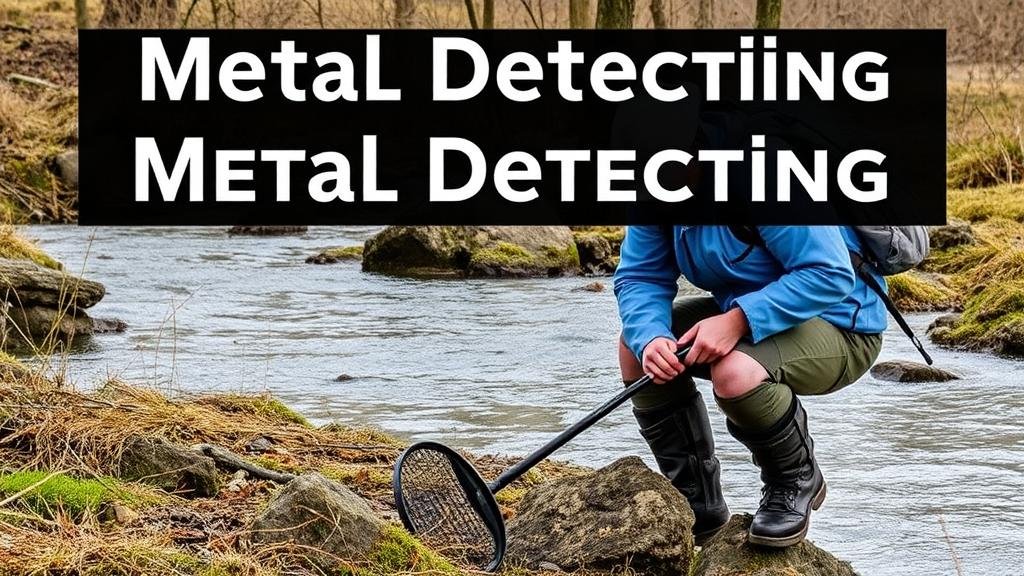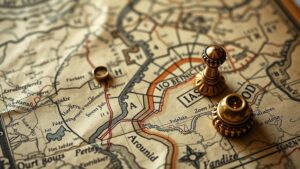Metal Detecting in River Crossing Fords for Old Tools and Valuables
Metal Detecting in River Crossing Fords for Old Tools and Valuables
Metal detecting has evolved into a popular recreational hobby, offering individuals the chance to unearth historical artifacts and treasures. One particularly fruitful area for exploration is river crossing fords, which have historically served as crucial transit points for people and goods. This article delves into the methodology and historical significance of metal detecting at these locations, highlighting the types of items you might find, useful techniques, and applicable case studies.
The Importance of River Crossing Fords
River fords are shallow areas of a river that allow for easier crossing, often used for centuries by travelers, traders, and armies. served as key points in commerce, migration, and military strategy, providing a rich context for historical artifacts. As early as the Roman Empire, fords were strategically selected for their accessibility, making them hotspots for human activity. As a result, these sites can yield metal items from various eras, including:
- Old tools used by tradesmen and farmers
- Coins lost by travelers
- Military artifacts from conflicts that occurred nearby
Studies indicate that locations with heavy foot traffic–like fords–are more likely to contain objects of interest. For example, a review of historical maps from the 18th and 19th centuries in the U.S. reveals that many towns were founded near these fords, suggesting enhanced potential for relevant finds.
Metal detectors can uncover a wide variety of items in river fords. The nature of these finds can provide insight into past activities and lifestyles. Some common categories of items include:
- Farm Tools: Tools such as hoes, plows, and sickles often ended up in waterways due to their utility and the rugged nature of field work.
- Coins: Currency–ranging from ancient Roman coins to more contemporary coins–was frequently lost by soldiers and civilians alike.
- Military Relics: Artifacts such as bayonets, buttons, and even remnants of uniforms can provide a glimpse into conflicts that shaped local history.
One notable find occurred at the site of a historic battlefield crossed by a river. A metal detector enthusiast discovered a cache of 19th-century bullets and uniform buttons, providing tangible connections to the past.
Techniques for Effective Metal Detecting
To maximize the success of metal detecting in river fords, certain strategies can enhance the likelihood of finding valuable items. Here are several proven techniques:
- Research: Prior to visiting a ford, thorough background research is vital. Historical maps, local archives, and even interviewing locals can uncover rich background information.
- Selection of Gear: Using waterproof metal detectors can allow for effective searches in shallow waters. Models with fine sensitivity settings are ideal for distinguishing between different metals.
- Timing: The best times for detecting are often after heavy rains that can shift sediment or following droughts when water levels are lower.
A real-world application of this approach took place in Virginia, where treasure hunters after significant rains revealed a collection of artifacts from the colonial era, including tools and personal belongings lost by artisans and travelers.
Legal Considerations and Ethical Responsibilities
Engaging in metal detecting is not without legal and ethical considerations. Its crucial to understand the laws regarding the recovery of artifacts, which can vary significantly by region. Regulations often dictate whether permits are necessary or if certain sites are off-limits. Plus, detecting in state or national parks typically requires explicit permission.
Ethical practices play a vital role in preserving history. Detectors are encouraged to:
- Obtain permission from landowners before detecting on private property
- Report significant finds to local historical societies or authorities
- Fill in any holes dug and leave the location as it was found
Conclusion and Actionable Takeaways
Metal detecting in river crossing fords offers a unique opportunity to uncover historical artifacts and treasures that contribute to our understanding of human activity in these areas. With a diligent research strategy, appropriate tools, and ethical practices, hobbyists can enhance their adventures while respecting the archaeological significance of their findings.
In summary, enthusiasts should:
- Investigate historical context and past human activity in selected river fords.
- Choose appropriate gear, particularly waterproof metal detectors.
- Be aware of legal considerations and commit to ethical detecting practices.
With these guidelines, metal detecting can be a rewarding and responsible pursuit that unearths the stories of our past, one artifact at a time.



